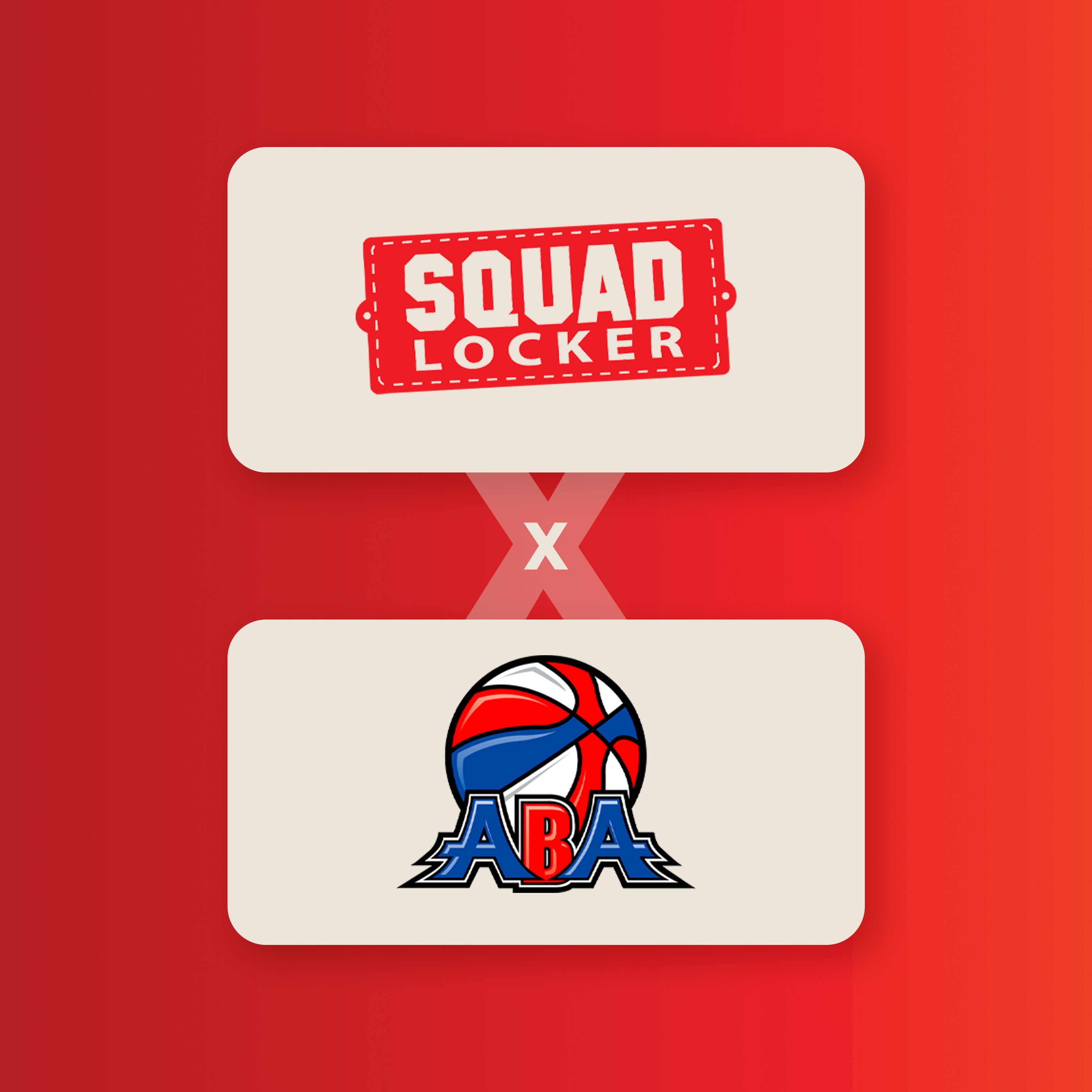Growing up Quaker meant learning to sit still, be quiet, and surreptitiously practice sign language with your friends. Today though, silence, mindfulness, and living in the moment — all the things that happened in the Quaker meeting — have taken a major role in the world. How can our childhood experiences, such as growing up Quaker, shape the way we think about sports, mentoring, and sports storytelling? In this episode of the On the Whistle podcast, I sat down with Andrea Kremer, seasoned sports journalist and analyst for Amazon Prime, Thursday Night Football. We talked about how her background in Quakerism affects her sports storytelling today. Andrea and I discussed:
How growing up Quaker helped Andrea find balance, peace, and empathy as a sports journalist The ways sports mentors can help build a sense of self Gender's role in sports journalism
Listen now
Full transcript
Gary Goldberg:
Hey guys, Gary here. Before we get to the show today, I wanted to highlight our sponsor SportsEngine. SportsEngine's dedicated to making the life of a youth sports volunteer easier. Through their applications, people are able to save time on administrative tasks allowing them more time to focus on developing their athletes.
Gary Goldberg:
More than a million teams, leagues and clubs use SportsEngine every day to run their websites, promote their programs and to collect sign-ups. They also offer an easy solution for getting uniforms delivered directly to their athletes' homes. It's called SportsEngine Gear and you can check it out at sportsengine.com/gear to get started. Great, now onto our show.
Announcer:
You're listening to On the Whistle, the podcast that explores the impact that coaches, teachers and mentors from youth sports organizations and schools have on young people's lives. Let's get into the show.
Gary Goldberg:
So welcome friends and listeners to another episode of On the Whistle where we explore the journey between mentorship, coaches, teachers, and the youth athletes that they work with as they journey to adulthood. And today we're going to get a particularly interesting vantage point from both the broadcast tower to the sideline, to the classroom, with our guest Andrea Kremer.
Gary Goldberg:
Andrea is a remarkably accomplished journalists and broadcast person. You can listen to our currently on Thursday Night Football on Amazon Prime Video's Thursday Night Football with her partner in the broadcast booth Hannah Storm. She has received probably too many to mention awards, but some of the highlights have been Emmys as well as a Pro Football Hall of Fame, Pete Rozelle Radio-Television Award, which recognizes longtime exceptional contributions to radio and television in professional football. Andrea, thanks for joining us today. It's super nice to have you on.
Andrea Kremer:
Thanks, Gary. It's great to be on with you.
Gary Goldberg:
So I'd love to kick things off at maybe near the beginning, which is your elementary and high school experience. I see that you went to a school in Philadelphia named Friends Select School and that's a Quaker school. And I too went to a Quaker school as did my kids and my dad and my brother.
Andrea Kremer:
That just makes me like you and admire you even more, Gary.
Gary Goldberg:
Well, I appreciate that. Quakerism and many people, I grew up a Jew. I'm still am a Jew, but I consider myself a hybrid Quaker Jew. And the reason that is is because for me Quakerism allowed me to find a remarkable balance in the way I approach conversations, the way I examine my own empathy and the way I listen actively and try and understand all the voices that come into a complex conversation or decision-making process.
Gary Goldberg:
And so for me, it has been a wonderful sense of peace, internal peace by understanding Quaker practices. And I'm just dying to know you being such an accomplished person in your career, what do you think about reflecting back on your Quaker education experience? Did you attend Quaker meeting? Did you use it to find some sort of inner peace or process like I did?
Andrea Kremer:
Well, I am a lifer as I like to say. Kindergarten through 12th grade at Friends Select, which is right in Center City, Philadelphia. My dad was a judge in Philadelphia, so we had to live in the city limits. So there weren't a lot of options for private schools. And I was really lucky that I started off at, at Friends. I'm still very, very involved with the school, much more so with Friends Select and really with my alma mater University of Pennsylvania.
Andrea Kremer:
But in fact, when Friends Select installed a new headmaster several years ago, they invited five alumni in the history of the school to present in. It was a huge event held at the Franklin Institute in Philadelphia. I was very, very proud to be one of the alumni representing and it was also the first African-American headmaster in the history of the school. So it's always been a progressive place. What I think is really interesting in this day and age, Gary is yes, we had mandatory Quaker meeting. You had to go at 10:00 AM. And that was the thing, "Oh, we got to go to meeting."
Gary Goldberg:
It's funny. We did it 10:00 AM too. It's funny.
Andrea Kremer:
Right. That's when my girlfriends and I learned sign language because, "Why do we have to go to Quaker meeting? Oh, it's such a pain in the neck. We're not going to be able to talk and we're not going to be able to this weekend. We got to sit in somebody... Oh, we got to sit still." Well, guess what? What do we hear about today? Mindfulness and living in the moment. Guess what? The Quakers knew what they were doing. A lot before these terms came to be en vogue as they are today.
Andrea Kremer:
And as I got older, I think we all came to embrace Quaker meeting as just a moment where you didn't have distractions. And of course back then, we're not talking about distractions of what they have today; phones and the internet and stuff like that. Distractions back then were, "Oh, what are you going to do this weekend?" And things of that nature. It was just a quiet time and I really think that in that area alone, the Quakers were really ahead of their time.
Andrea Kremer:
I think the education and the camaraderie that you built amongst your classmates and which especially living in the city, I had a very diverse graduating class that is for sure. And the teachers that you really built relationships with and the sports that you could play in and the encouragement that you got, it was almost idyllic. And even in school, I played three sports and I taught French because I was fluent at that time. And I was very, very involved in a lot of activities at school. And truthfully Gary, the thing that's most meaningful to me is to this day, my closest friends in the world are from Friends Select.
Andrea Kremer:
One I met when I was two, we believe it or not went to nursery school together. My other close friends all again lifers kindergarten through 12th grade. And when I was inducted into the Pro Football Hall of Fame as you kindly alluded to in 2018, two of them were there. And I will tell you one funny story. In high school, I would come home on Monday mornings with money in my pocket. And after a couple of weeks, my mom quizzically said to me, "Where's the money coming from?" And I looked at her sheepishly and I said, "I'm winning the football poll at school."
Andrea Kremer:
So if you ask any of my friends that I grew up with about my love of sports, particularly football, they will kind of give you a, "Yeah, well, tell us something new," but they witnessed it and grew up with it. And you know what? The fact that I was really accepted even as a kid by the boys for liking and loving football and actually knowing in some cases more than they did that also I think reflects on the kind of community that we had in our high school.
Gary Goldberg:
Andrea, you talked about playing a bunch of sports and being involved in a bunch of extracurricular activities. Can you just touch on how that helped build your sense of self-esteem or personality at a young age? And who are some of the people that you thinking back "mentored you" or put you on a trajectory that you may not have had had it not been for their personal involvement in your life?
Andrea Kremer:
Yeah, well, it was interesting growing up because I played three sports, field hockey in the fall, I swam in the winter and I played tennis in the spring. But you have to also understand Gary that throughout high school and college, I danced ballet and I danced ballet with two companies in Philadelphia. I ended up dancing in New York. So I had a kind of a busy time. And my mom always said that I could do as much as I wanted as long as my grades wouldn't suffer, and as long as I was getting my sleep. And I had to learn to compartmentalize.
Andrea Kremer:
But I mean, I remember master Ralph and just so people understand, we used to call our teachers master and teacher. That's not a weird thing. That's just part of the Quaker convention and master Ralph was our main gym teacher and master Ken and teacher Betty. And I remember all these teachers quite well, but truthfully Gary, I also remember teacher Janine and my French teacher and my tremendous English teacher. And so I had a lot of really great ...
Andrea Kremer:
I don't know if I looked at them as mentors as much as just supportive teachers, right? People who really took an interest in what was of interest to you, not just what they had to teach. And I certainly know that that is something that really informed a lot of the way that I deal with people now, both as a teacher myself, as well as a mentor.
Gary Goldberg:
What do you teach today?
Andrea Kremer:
I teach at the Boston University College of Communication in the School of Journalism. I teach a class that I created and developed myself called the art of the interview. So I will be evaluating your interviewing skills at the end of this podcast, just so you know.
Gary Goldberg:
You should have told me that after I interviewed you.
Andrea Kremer:
No, no, now we put the pressure on you, Gary, come on.
Gary Goldberg:
That's fine.
Andrea Kremer:
You can handle it. I have no doubt. But in a quick story, it came about because a woman that I know is a professor at BU and in 2012, she's a journalism professor. She was taking a group of students to London to operate as working journalists. They were filing for NPR and local Boston stations and things of that nature. And she asked me if I would come in and guest lecture to her class about my Olympic experience having worked in 2008 and 2010, and also going over in 2012 to London as well.
Andrea Kremer:
And I came in and I was quite prepared as I tend to be and showed video and had a lot of discussion. And at the end, she said, "Would you ever be interested in teaching?" And I said, "Well, it's interesting you say because I talked to so many people, so many young people." In fact, you'll get a kick out of this. I've been the subject of many a master's and PhD thesis on that peculiar being called the female sportscaster.
Gary Goldberg:
I'd love to dig into that a little bit.
Andrea Kremer:
Yeah. So I talked to a lot of young people and I figured this is a great way to sort of institutionalize what I know. This will be my ninth spring. I only continue in the spring, obviously due to football. My ninth spring teaching and I built very strong relationships with my students. I'm very proud. Bill Walsh has his tree. I love having my tree of successful students who are doing really cool and neat things. And it's not even just in journalism. So I really love teaching. It's an incredible amount of work even to this day, but fully worth what I hope the students are getting from it.
Gary Goldberg:
Why do you think that there's this current state where the analysis of gender plays such a huge role in determining whether something has value or somehow designating something more or less valuable depending on gender? It just seems from both of our mutual Quaker experiences kind of silly and not worthwhile. But I know that TV Guide said, "Kremer is among TV's best sports correspondents of either sex." And I just kind of find that unnecessary, but I'd love your opinion on it since quite frankly, it's your career.
Andrea Kremer:
Yeah. I mean, look, there is always going to be a portion of the population that doesn't want to get their sports information from women and don't think women belong in a broadcast booth or on a sideline. You name it. And to those people, I say, that is your option. Obviously, that is your choice, but we ain't going anywhere. Genie's out of the bottle, not going back in. Women are here. More women are here than ever.
Andrea Kremer:
But as I tell young women, because that still exists and I don't really see it lessening, you have to understand that there's a double standard that exists. And as I've always sort of joked the venerable ESPN sportscaster Chris Berman. If Chris Berman mistake somebody's name and adds Boomer ... But if Linda Cohn does it, if Hannah Storm does it, "Oh, well, they don't know." If Andrea Kremer does it. "Oh, they don't know."
Andrea Kremer:
And you know what? Nothing to do to change that other than everybody's going to make mistakes, don't make the same mistake twice. And instead of complaining and bitching about a double standard that exists, put your blinders on, do your job prepare like no other. And just understand that only through your actions are people going to change their views. It's just that simple. Talking about it isn't going to do a whole lot.
Gary Goldberg:
Andrea, thinking about your class that you're teaching and the mentorship that you're doing for up-and-coming journalists or up-and-coming interviewers, can you think of any stories you could share with us about a couple of young students or students coming through their journey that you saw a great change in through your own personal interaction with them?
Andrea Kremer:
Yeah. Well, one of the pieces of advice that I got from the dean early on is and I teach mainly graduate students is treat them like junior colleagues. And that means that I have high expectations for them. And I lay out my expectations pretty strongly. And so here's just kind of one really small little example. I let them know early on. I establish the standards that I want beyond just my syllabus.
Andrea Kremer:
But I tell them that, for example, in the writing assignments that they give to me, I'm really, really, really particular about proofreading mistakes. And I remember back when I was at ESPN and a production assistant said to me, "Well, I mean, it's TV. I mean, why do you care if there's misspelling in the transcript and the log of the interview?" And I go, "Well, if you make a mistake there, where else are you making a mistake?" That misspelling, that error in a transcript could translate to a frame when you're editing or a little bump in audio, and all those details really matter.
Andrea Kremer:
And kids have to understand that. They can't lay things up. They have to understand exactly how much attention needs to be paid to all these little details. It's no different than coaching a wide receiver's route. Every inch counts. If you're supposed to be running a certain route downfield and cutting in at a certain angle, that needs to be precise because guess what? The ball's going to be where the quarterback is expecting it to be. And if you're not exactly there, then there's going to be an interception or a drop pass. Because as we know with a pass, three things happen and two of them are bad.
Andrea Kremer:
So it's whatever it is in any profession, in your profession at SquadLocker. The details matter. You know what I mean? If you're asked to deliver a certain number of uniforms, that's how many uniforms have to be delivered. It's not like, "Okay, well it'll be around." So I think that's one thing that I really let my kids know. And try to more specifically answer your question, there was one student in particular, he was the only senior. It was in my class last year and he really wanted in and my class is pretty much application only. So he had applied to get in.
Andrea Kremer:
I must admit Gary, that the wheat separates from the chaff pretty quickly. You can see who's going to put in the work, you can see who really has the talent and you can't treat them differently, but you can tell and this kid I knew right away. What I didn't know is how nervous he was being in class. And about a third of the way through the semester, I assigned him to produce a big shoot. In other words, to have to manage his classmates in something.
Andrea Kremer:
And as we grew closer over the course of the semester, he told me that the fact that I showed that faith in him by assigning him this role meant more to him than any grade I could have given, whatever it is. And this kid works so hard. And I think really learned a tremendous amount because there are specific skills that I do teach. And he was just a rock star. And when you see kids that are working that hard, you want to do what ever you can to help and support them in every way.
Gary Goldberg:
I was watching in anticipation of talking to you today. I was watching some highlight videos about you and I came across this really interesting video on YouTube, you and Hannah kind of interviewing each other, talking about [crosstalk 00:19:02] Yeah, it was really cool talking about taking on this Amazon Prime. There's a Night Football opportunity. And it was pretty action packed in the sense that you can see there's control rooms and there's people I assume talking in your ear while you're giving color commentary and stuff like that.
Gary Goldberg:
And I was just wondering, do you still get or did you ever get butterflies or three minutes till on the air? Do you feel that like you did in your earlier years?
Andrea Kremer:
Right. And I say this to my students and I say this to your listeners and I say it to my own son, butterflies are really good because I think they show that you care. It's what you do with them. Do you let them paralyze you or do you let them propel you? If they paralyze you, then you get in front of a camera and you realize, "Oh my God, I'm on the sidelines for the Super Bowl. There's 110 110 million people watching" and you freeze.
Andrea Kremer:
But if you sit there and let those butterflies really, really motivate you, and you're like, "Okay, you know what? I earned being here. And this is good to feel this way. And I'm going to use this in a positive way," then they don't hurt you. And so I want to feel when our producer's in my ear saying, "All right, two minutes or 30 seconds to Hannah," whatever it is. I mean, we always as I call it our small but mighty team. We obviously wish everybody have a great show, have a great game, have fun.
Andrea Kremer:
Something my husband will always say to me, "Have fun." And that's something Hannah and I have talked about. If we're having fun, the audience is having fun. And believe me, they know because we want to be in a position where we're an option for listeners, for viewers. And we want them to think that they're just hanging out with Hannah and Andrea watching the game, learning a lot, getting perspective` they're not getting from any other place. We really feel that we are a team and that it's okay to be a little nervous, but we're not letting that spill out in any kind of a negative way.
Gary Goldberg:
I can feel kind of the excitement just watching the videos. And to be honest with you, I'm a little envious. I would love the opportunity to have that type of audience. It just seems so awe-inspiring. You mentioned your husband. I read that your husband is an archeologist at UMass Boston. And I watched a video that he put online called Mapping Mattapan.
Andrea Kremer:
Well, oh yeah, that was really a great project they did.
Gary Goldberg:
Okay. So he has 902 views on his video and you have 110 million people watching you.
Andrea Kremer:
His are much more important. He's an educator.
Gary Goldberg:
Is there ever a point of contention on who has a bigger audience?
Andrea Kremer:
No, no, no, no. In fact, it was really great because years ago the Boston Globe did a story on my husband. And we'd always waited to see who was going to be smart enough to figure this out. So my husband did his PhD in Denmark on wait for it, late neolithic early stone age, early late neolithic, early bronze age stone tool technology. Hey, guess what? Remember the movie Diner where the guy made his fiancee take a test about the Baltimore Colts before they got married? I willingly read my husband's PhD dissertation before we got married.
Andrea Kremer:
I actually helped edit it because I'm a great editor. Because I told you, I'm sort of OCD about proofreading and stuff. I have no idea what it was about, but I'm a really good editor. But anyway, so the Globe did a story on my husband and the lead was something along the lines of how my husband studies dead vikings and I study live ones. The most important thing is that my husband is as passionate about what he does as I am about what I do. And that is hugely important. And he is so knowledgeable in terms of the work he does at the Fiske Center for Archeological Research at UMass Boston. And I'm very proud him for what he has achieved, a master's, two master's, including one from Oxford and a PhD and a Fulbright Scholarship.
Andrea Kremer:
He is smart in every way and people will say to me, "Oh, is your husband in the business?" And I go, "No, he's a civilian." But you know what? He is great because he knows what makes good television, he played football Division III football in college at the University of Chicago. So he knows the game and I have great respect for his opinions. And trust me, he's not the kind of guy who says, "Well, you're my wife. I'm only going to tell you nice things," which I would never want. He's a really great person to offer constructive criticism.
Gary Goldberg:
Yeah. And he seems by the video I watched, he just appears to be a really sweet and nice guy too.
Andrea Kremer:
Well, what do you expect me to say Gary? Of course.
Gary Goldberg:
Yeah. Hey, so Andrea-
Andrea Kremer:
He's married to me. That's not an easy thing here.
Gary Goldberg:
I can imagine it'd be pretty exciting. It sounds like a super dynamic couple, the two of you. I'm curious one question that I like to ask people on the show is having both been an athlete, Andrea and you've played a lot of games, played in a lot of tournaments and witnessed dozens upon hundreds upon thousands of competitions. I'm curious, do you gain more from the wins or the losses?
Andrea Kremer:
Well, I have been around so many coaches and they say all the same things, which I understand, which is that the losses resonate for you much more than the wins. And the losses are what keep you up at night. And hey, it's like if you misspeak during a broadcast, it's the thing that I've learned Gary. When you're a reporter and you get a couple of times during a show or a game to have like a 25-second report, you want to bet a thousand all the time and a lot of times you don't, and everybody does misspeak. When you're doing a three-hour plus game, there's stuff that comes out of your mouth and you don't even know, and it could be a wrong team name or wrong this.
Andrea Kremer:
And I was talking with our spotter who has done 404 NFL games. And he said, "Everyone, misspeaks. It's inevitable when you are talking for that long. It's just inevitable." And you have to accept it. So a couple of weeks ago, we had a game with green Bay and San Francisco, and they were both in COVID hell. The Packers were without running backs. The 9ers were without wide receivers. And on the opening kickoff, Hannah got her spotting board sort of crossed up and she called out a wrong name.
Andrea Kremer:
Now Hannah is the most accomplished, amazing broadcaster I have ever been around and we're in commercial and she was just despondent. And I look at her and I go, "You got to be the DB. You got to be the cornerback that just got beat for a touchdown. You're going to come back, you're going to win the game anyway, but you have to put it behind you." And even the most seasoned broadcaster, you have to do that. And that's what coaches teach, especially if you are going to get beat on defense, for example.
Andrea Kremer:
So the losses, the mistakes always resonate, but that's because we're perfectionists and we really want to do our very, very best and we're working so hard. I mean, show me a person who goes out and says, "Oh yeah, well, I want to make a mistake on this broadcast or yeah, I want to get beat on in this game." No, nobody wants to, but it's what you learn from it. So every single week, one of the reasons Gary, I love this job, this new job. How blessed am I to have four television jobs? Oh my God.
Andrea Kremer:
But I love this Amazon Thursday Night Football job is because I am learning every single game so much. And we get great feedback from our producers and it's to me, that's everything. I need to be challenged every day and I need to feel like I'm learning something every day.
Gary Goldberg:
Andrea, it's been a great pleasure to have you on the show today. And we're super grateful for not only your comments, but your insights, and this idea of being fulfilled during your profession and being inspired to be productive. It's been a joy to talk to you. And I personally will only be watching Thursday Night Football on Amazon Prime because I feel you have something to say and I'm interested in hearing it. So thanks so much, Andrea.
Andrea Kremer:
Well, I appreciate it, Gary. As I said, we're an option. I will leave you this, which-
Gary Goldberg:
You're not an option. I think you're the option.
Andrea Kremer:
Well, no, we're an option. We're not everybody's cup of tea. We have our own preparation process. I think that we certainly give a unique broadcast. We kind of joke with each other. We're in more than 200 countries. And so, as I like to say, can you imagine someone in Indonesia who's watching us and thinks that two women talking about football is just normal. They don't think that it's such a first that we know it to be.
Andrea Kremer:
So I like to think that we do provide something different and that's really important to us. But it's great to have a conversation with you, my fellow Quaker, and I wish you, your family, your listeners, a wonderful holiday season. Above all, be healthy and safe. And it's really great to talk to you and keep up the great work at SquadLocker.
Gary Goldberg:
Thanks so much, Andrea. It's always a pleasure.
Announcer:
You've been listening to On the Whistle. For more, subscribe to this show in your favorite podcast player, or visit us at onthewhistle.com.
Share this Story


.jpg)







